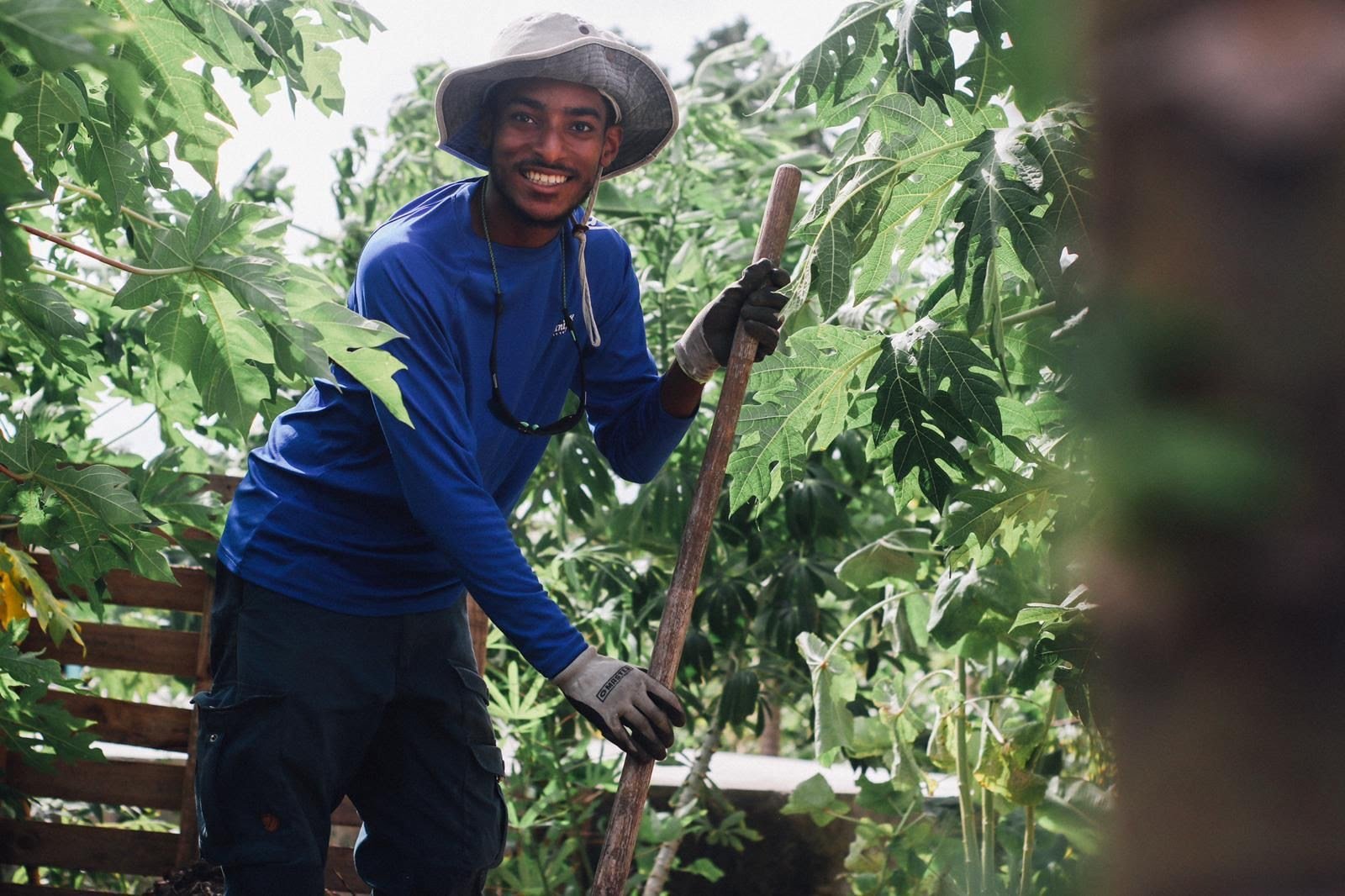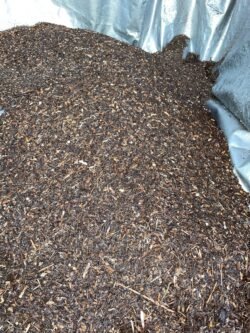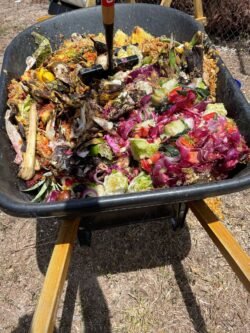
June 10, 2021 at 3:47 pm | Nassau, Bahamas
Think back to when you were a child, your plate filled with some food item you despise. If you close your eyes, you may even be able to hear your grandmother’s voice, firm and strong, commanding you to eat your food. Like clockwork, she further chastises you with the words, “there are starving children around the world who wish they had this food to eat.” Still, you push the food aside on your plate, readying it for its fate in the trash.
Now, think of your current food habits. When was the last time you tossed an unattractive but perfectly edible end slice of bread in the garbage? Or glanced at the expiration date on a carton of milk and threw it down the sink without a second thought? More than 240 million slices of bread are thrown away each year, and around 5.9 million glasses of milk are poured down the sink.
When persons throw food that is safe and healthy away, it is called food waste. According to the United Nations Food and Agriculture Organization (FAO), about 1/3 of all food is wasted.
In the rush of daily life, people rarely consider what happens to the food they throw away or how it affects the environment. But they should. Uneaten food is the #1 material sent to landfills, ahead of plastics and paper, and it’s a big problem. When food waste ends up in a landfill, it gradually breaks down to form methane, a greenhouse gas that is 28 times more potent than carbon dioxide.
“Food waste is something we can control, and in New Providence, we don’t have much land available for landfills, so we need to make our current landfill last as long as possible,” shared Ginny McKinny, Director at the New Providence Ecology Park (NPEP). “When food waste ends up at the landfill, it takes up space and damages the environment by producing methane, which fuels global warming and feeds landfill fires. Food waste in the landfill also produces leachate, which can pollute the water table.”
The best way to reduce the harmful effects of food waste is to prevent it from happening altogether. One tip is to keep track of what is in your refrigerator and cupboards to avoid buying food items you already have. Meal planning before shopping is another way to avoid buying items you may not eat.
Still, even with our best efforts, there will always be food scraps that cannot be consumed, such as eggshells or banana peels. That’s where composting comes in.
May 29 is recognized as International Composting Day. Composting is a great way to recycle household food scraps instead of tossing them in the trash. However, only a small percentage of food is composted worldwide. Still, a growing number of Bahamians are exploring composting as a way to reduce food waste.
Shameka Fernander, a thirty-eight-year-old mother of two and home gardener, has been composting in her backyard for the last six months. Like many people, Shameka was inspired to start a home garden during the early months of the pandemic. Utilizing the container gardening method, she grows an array of fruits and vegetables, including tomatoes, bananas, plantain, carrots, various varieties of lettuce and cabbage, herbs and spices, peppers (sweet, jalapeno, banana, and goat), limes, soursop, mangoes, avocado, apples, peaches, and pineapples. Shameka describes her home garden as a “huge motivator” in inspiring her to explore composting. “I had just gotten the basics of growing my own food, and it felt like a natural evolution to try my hand at the soil.”
Composting is a natural method to recycle organic matter such as leaves and food scraps into fertilizer to enrich soil and plants. By composting at home, individuals can divert some of the food waste from landfills and turn it into organic fertilizer for the yard. Referred to by farmers as “black gold,” compost contains the essential nutrients nitrogen, phosphorus, and potassium and can be used for gardening, horticulture, and agriculture.
Shameka is from a family of what she refers to as passive composters. “As a child, I remember having to take our food waste and put it at the base of our fruit trees.” However, after researching the basics of composting online, she invested in an outdoor compost bin for her home. “I also purchased natural products that support the decomposition process and control the smell.”
Whenever she prepares food for her family, food scraps are stored in a small indoor compost bin, complete with a biodegradable liner. Once a week, she throws the scraps, liner and all, into her outdoor compost bin located in her backyard. She turns the bin daily to speed the composting process. Within weeks, she has rich organic matter to use in her garden. It’s a new habit that she is committed to continuing for the rest of her life.
“I feel like I’m doing my part in reducing landfill waste and giving something back to the earth. I’m slowly trying to convert to a more sustainable lifestyle, so I like taking small, doable steps to help get me there.”
Beyond home gardeners, composting is also an attractive market for entrepreneurs. Nicholas Fox, the proprietor of Soul and Soil, has been offering composting services since June 2020.
Soul and Soil provides services and products for those who want to reduce their carbon footprint but don’t have the time, knowledge, or patience to compost themselves. “I’m motivated by solving problems that make people’s lives a little less difficult,” shared twenty-two-year-old Nicholas, known on Instagram as @dacompostking.
His company offers organic waste collection, permaculture consulting as well as compost and compost tea.
Whether you choose to compost or simply become more intentional about reducing food waste in your home, The New Providence Ecology Park, the environment, and ultimately you will reap the benefits.
NPEP Director Ginny McKinny sums it up nicely, “Less food waste means less environmental damage to our beautiful planet; what’s not to love about that?”

From Waste to Gold – A wheelbarrow full of food waste on its way to be composted at Soul and Soil. Once the composting process is complete, the result will be nutrient rich, organic fertilizer referred to by some farmers as “black gold” that enriches soil and plants.

From Waste to Gold – A wheelbarrow full of food waste on its way to be composted at Soul and Soil. Once the composting process is complete, the result will be nutrient rich, organic fertilizer referred to by some farmers as “black gold” that enriches soil and plants.
